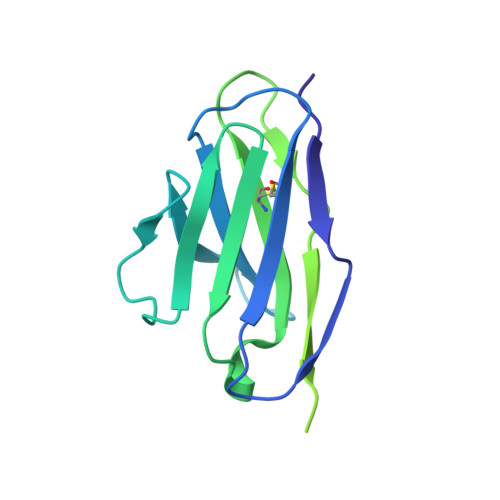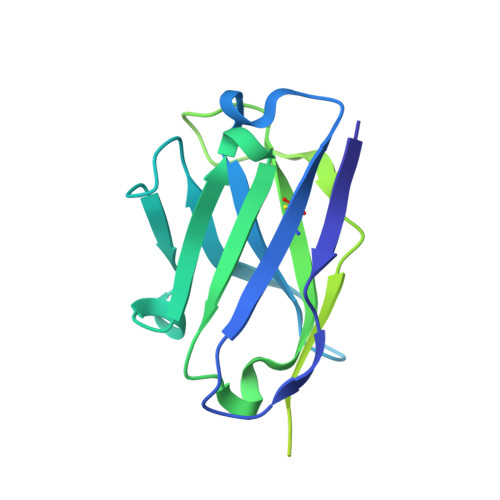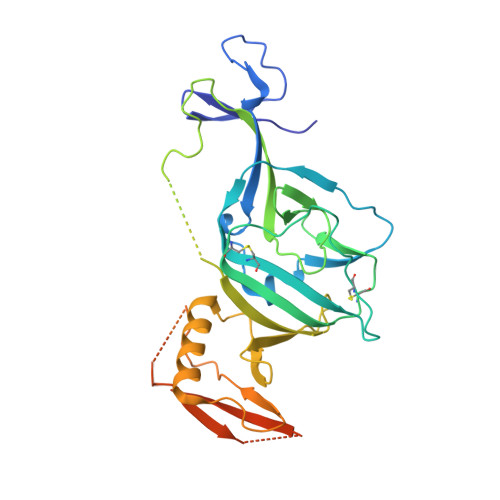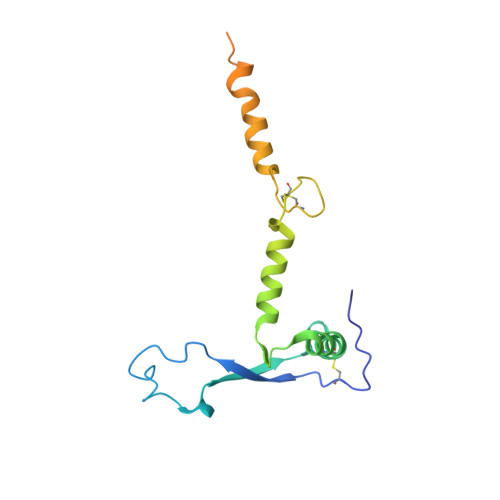Polyclonal and convergent antibody response to Ebola virus vaccine rVSV-ZEBOV.
Ehrhardt, S.A., Zehner, M., Krahling, V., Cohen-Dvashi, H., Kreer, C., Elad, N., Gruell, H., Ercanoglu, M.S., Schommers, P., Gieselmann, L., Eggeling, R., Dahlke, C., Wolf, T., Pfeifer, N., Addo, M.M., Diskin, R., Becker, S., Klein, F.(2019) Nat Med 25: 1589-1600
- PubMed: 31591605
- DOI: https://doi.org/10.1038/s41591-019-0602-4
- Primary Citation of Related Structures:
6QD7 - PubMed Abstract:
Recombinant vesicular stomatitis virus-Zaire Ebola virus (rVSV-ZEBOV) is the most advanced Ebola virus vaccine candidate and is currently being used to combat the outbreak of Ebola virus disease (EVD) in the Democratic Republic of the Congo (DRC). Here we examine the humoral immune response in a subset of human volunteers enrolled in a phase 1 rVSV-ZEBOV vaccination trial by performing comprehensive single B cell and electron microscopy structure analyses. Four studied vaccinees show polyclonal, yet reproducible and convergent B cell responses with shared sequence characteristics. EBOV-targeting antibodies cross-react with other Ebolavirus species, and detailed epitope mapping revealed overlapping target epitopes with antibodies isolated from EVD survivors. Moreover, in all vaccinees, we detected highly potent EBOV-neutralizing antibodies with activities comparable or superior to the monoclonal antibodies currently used in clinical trials. These include antibodies combining the IGHV3-15/IGLV1-40 immunoglobulin gene segments that were identified in all investigated individuals. Our findings will help to evaluate and direct current and future vaccination strategies and offer opportunities for novel EVD therapies.
- Laboratory of Experimental Immunology, Institute of Virology, Faculty of Medicine and University Hospital of Cologne, University of Cologne, Cologne, Germany.
Organizational Affiliation:






















